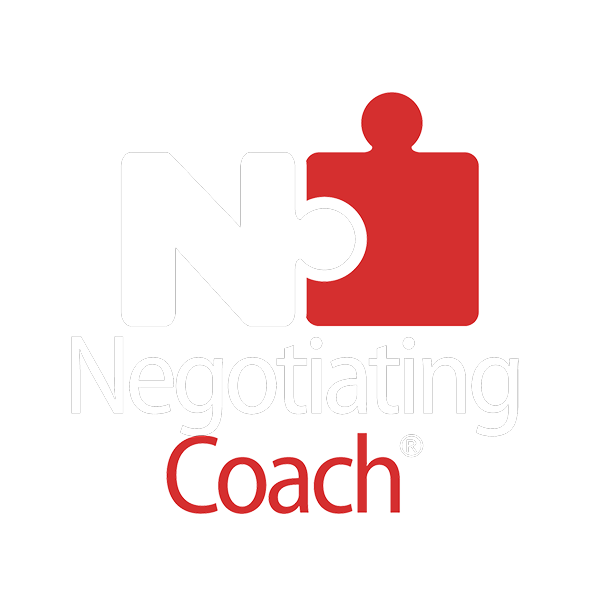Five Characteristics That People Should Embrace to Become Better Negotiators
Five Characteristics That People Should Embrace to Become Better Negotiators
Embracing Success: The Essential Traits of Effective Negotiators
1. Good Negotiators Invest the Time to Learn and Understand the Wants, Needs, and Desired Outcomes of the Other Side
In the dynamic world of negotiation, it’s crucial to recognize that negotiating is a two-way street. While it’s natural to focus on your wants, needs, concerns, and desired outcome in business, social or personal negotiations, acknowledging that the other side faces some degree of ‘pressure’ to arrive at a negotiated outcome is essential.
To be a more effective negotiator, you must carefully examine the other side’s potential ‘pressure points’ to comprehensively understand the negotiation landscape. In a selling situation, it’s easy for salespeople to lose sight of the customers’ underlying ‘pressure points.’
Ask yourself: Why does this person or company need my product or service? What outcome does the other side want?
Often, the other side involved in a negotiation may not be willing to reveal their ‘pressure points’ openly. Why? Because the other side may feel that sharing information might put them at a disadvantage in the negotiation. Therefore, most people are not forthcoming with the information you need that can help them.
Hypothesizing, using conjecture or making assumptions about the other side’s needs and desired outcome is a common negotiating mistake made by most people. Answers to your questions must come from the other side involved in the negotiation – not from your imagination or personal belief system.
Tip: Prepare and learn to ask effective blueprinting questions. Use proven questioning techniques to uncover clues to help you understand the other side’s wants, needs, and dominant motivation. You can learn more about accessing my results-producing best practices negotiating phrases, scripts, blueprinting questions, and questioning techniques HERE.
2. Good Negotiators Embrace Continuous Improvement
Successful negotiators desire to acquire, learn, and apply effective negotiating practices and skills. Negotiation isn’t reserved for the boardroom, labour disputes, or government negotiations. Negotiation is an essential life skill, and it’s a learned skill. Investing time and effort to hone your negotiating skills is the key to navigating negotiations with finesse. Without a commitment to constant improvement, you’ll likely have sub-optimal outcomes and continual frustration.
Tip: Invest in negotiation courses, templates, and tools that will help you improve your skills and results. Also, using a professional sports analogy, I recommend you “game film” yourself and do a forensic autopsy on all your negotiations to determine how you could have done better and make the necessary changes in your approach, strategies, and tactics.
3. Good Negotiators Master the Art of When and How to Use Negotiating Gambits and Countergambits
Unlocking the potential of negotiation lies in the strategic use of what we teach in our negotiation skills training programs – negotiating gambits and corresponding countergambits. The terms gambit and countergambit are chess terminology meaning “manoeuvre for advantage.”
Tip: Learn and understand the nuances and intricacies of using gambits and the corresponding countergambits. Learn when to deploy each gambit and be prepared with the appropriate countergambit to defend against savvy negotiators who wield them (as the situation dictates.) These negotiating gambits and countergambits provide a versatile competitive edge at different stages of negotiation – enhancing your overall approach and effectiveness.
4. Good Negotiators Consistently Practice to Improve Their Skills and Results
Negotiating is not just about someone trying to close commercial business deals. Consistent practice is the key to expanding your skills in all business, personal, and social negotiations. Don’t wait for meaningful, large-scale, high-value negotiations to implement your knowledge. Seek small opportunities to apply your newfound negotiating process, strategies, and techniques. Through a commitment to ongoing practice, your negotiating abilities will flourish, and results/outcomes will improve.
5. Good Negotiators Have a Strong Desire to Create Win-Win Outcomes
A successful negotiator is focused on more than just their gains. Much has been written about the Win-Win approach to negotiations. The desire to create Win-Win situations is paramount to success. It’s recommended that you try to manage the negotiation process to ensure the other side feels it won some concessions from you in a negotiation. It would be best to take responsibility for implementing the required negotiating process, methodology, strategies, and tactics to foster positive outcomes for both sides.
Greater confidence and influence improve when negotiation is approached in a collaborative – versus competitive manner.
Tip: We provide our clients with an easy-to-understand and apply Negotiating Behaviour Matrix Diagram that helps people navigate the Win-Lose, Lose/Lose, Lose/Win, and Win/Win approaches. It’s important to separate “content from emotion” in your negotiations. Also, the concern for substance and the relationship is crucial in determining your negotiation approach.
Conclusion: Elevating Your Negotiation Skills
Regardless of your experience, mastering negotiation skills is an ongoing journey for all of us. You’ll become a better negotiator and gain confidence and influence by continuously improving, mastering tactical maneuvers, consistently practicing, and fostering Win-Win outcomes.
These five characteristics of a good negotiator are not just for personal gain. Adequately managing the negotiation can contribute to the success of each side involved in a business, personal or social negotiation.
Learn to embrace these five characteristics of a good negotiator and watch your negotiation capabilities and outcomes improve.
Take Action and Invest in Our Expert Negotiating Training and Negotiation Coaching Packages, Negotiation Tools, and Online Course to Become a Better Negotiator.
» Negotiating Skills Training: Book a tailored in-house presentation, seminar or learning workshop for your organization.
Speaking Engagements – Industry Associations and Companies: Book a tailored, engaging, and impactful 60-minute to two-hour presentation at an upcoming meeting, conference or convention.
» Negotiating Coaching Packages: If your company is facing a challenging high-value negotiation and you need an expert to help you or your team – or you own a small business – or you’re an individual who needs practical negotiation advice, you can benefit from my investing in one of my three proven, results-producing negotiation coaching packages for individuals, small business owners or corporations.
» Digital Negotiation Learning Products: You can purchase my three E-books containing powerful strategies and tips. E-books: Forensic Blueprinting Questions For Effectively Selling and Negotiating Price or Fee Increases and Managing the Price-driven Sale, Selling and Negotiating Price or Fee Increases in Any Economic Environment, and Strategies and Tips on How to Effectively Manage the RFP/RFQ/RFI or Bid/Tender Process to Optimize Results and Outcomes.
You can also purchase the Negotiating Personality Type and Corresponding Negotiating Style Self-Assessment Questionnaire and Interpretation Results and my NEW Digital MP3 “Greatest Hits” Verbal Negotiating Phrases, Scripts, Questions, and Questioning Techniques. These helpful tools are in digital format and can be easily downloaded.
I provide a discounted Master Negotiator Bundle with all my Digital Learning Products.
» Online Sales Negotiation Course: If you’re in sales, sales management or a cross-functional role that supports sales, you can benefit from enrolling in my NEW self-paced Negotiating for Sales Success online course.
» Meet Negotiating Coach® Michael E. Sloopka
No part of this copyright material can be used without written permission from Selling Solutions Inc.
[/thrive_lead_lock]


